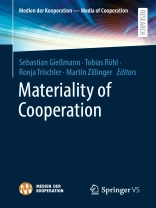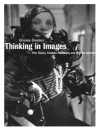The volume investigates the socio-material dimension and media practices of cooperation – before, during and beyond situations. Cooperation is understood as reciprocal interplay operating with or without consensus, in co-presence or absence of the involved actors in distributed situations. Artefacts, bodies, texts and infrastructures are the media that make cooperation possible. They enable and configure reciprocal accomplishments – and are themselves created through media practices in cooperative situations.
Inhoudsopgave
Materiality of Cooperation. – ‘Harmony, Not Discord’.- The Interface of the Loading Ramp.- Version Control.- Chains of Co-operation in the 1940s.- On Identification.- Routines of Cooperation in Creative Work.- Bodies/technology on Standby.- Strapping and Stacking.- Creating Trans-situativity.- Varieties of Trans-sequentiality.- Ecologies of Media Practices.- Socio-material Practices in Irritating Situations. The Irreducibility of Technical Skill.
Over de auteur
Dr. Sebastian Gießmann is Reader in Media Theory at the Media Studies Department, University of Siegen. His research focuses on relations between digital media, practice and cultural techniques.
Prof. Dr. Tobias Röhl is Professor of Digital Learning and Teaching at the Zurich University of Teacher Education. He researches how technology mediates interaction in the fields of education and public transport.
Dr. Ronja Trischler is a Post-Doc Researcher in Sociology at the Technical University of Dortmund. Her research concerns collaborative digital practices, with a focus on visuality and materiality of interaction.
Prof. Dr. Martin Zillinger is Professor of Social and Cultural Anthropology and Speaker of the Center for Media Studies and Modernity Research at the University of Cologne. His major field research has been in Morocco on trance mediums and new media.In his publications he addresses issues at the intersection of anthropology, media studies and philosophy.












